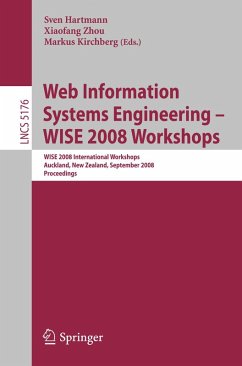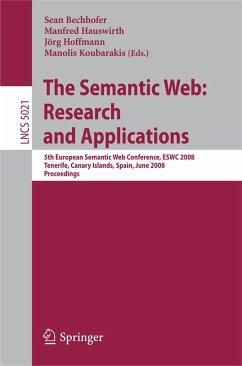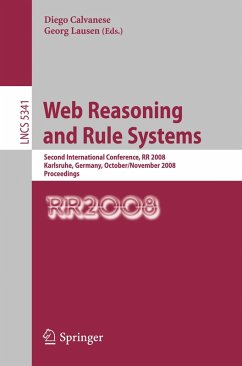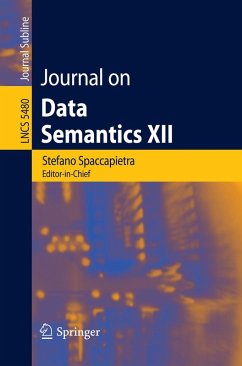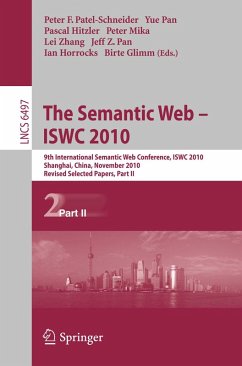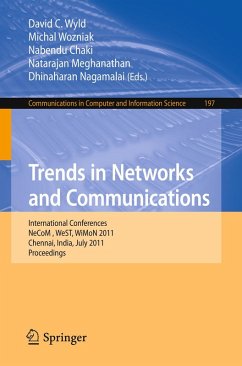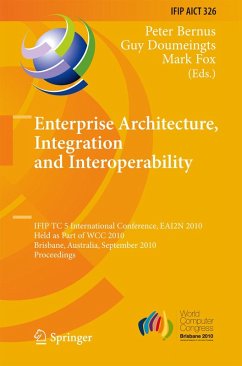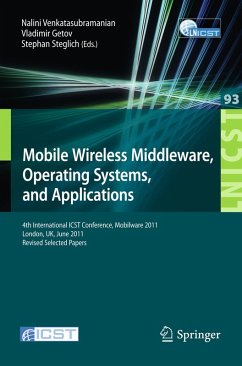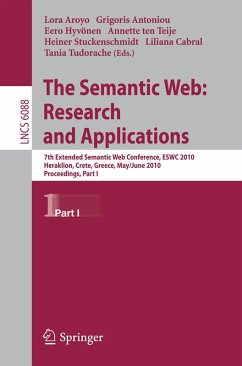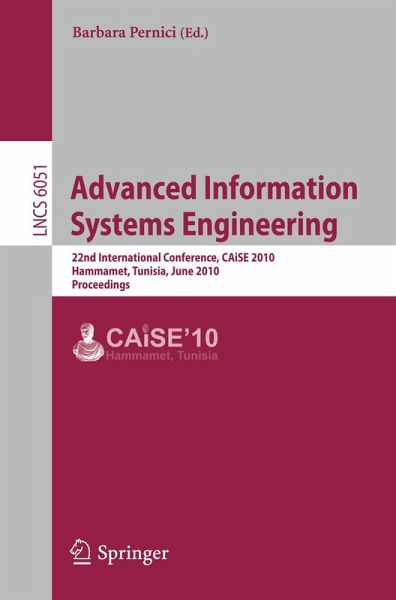
Advanced Information Systems Engineering (eBook, PDF)
22nd International Conference, CAiSE 2010, Hammamet, Tunisia, June 7-9, 2010, Proceedings
Redaktion: Pernici, Barbara
Versandkostenfrei!
Sofort per Download lieferbar
72,95 €
inkl. MwSt.
Weitere Ausgaben:

PAYBACK Punkte
36 °P sammeln!
Advanced Information Systems Engineering (eBook, PDF)
Dieser Download kann aus rechtlichen Gründen nur mit Rechnungsadresse in A, B, BG, CY, CZ, D, DK, EW, E, FIN, F, GR, HR, H, IRL, I, LT, L, LR, M, NL, PL, P, R, S, SLO, SK ausgeliefert werden.



